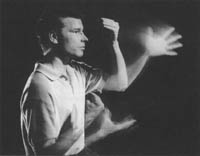|
[ Introduction | Links ]
|
STROKE
There is a great deal of information on the web about stroke and its affect on people. There is, however, little information out there about how it may effect deaf people who use American Sign Language (ASL) as their primary language. We hope this page will help members of the Deaf Community and their families and friends understand the ways stroke can affect the language abilities of ASL users. It is estimated that nearly 5,000 members of the Deaf Community in the United States have survived a stroke. Here are some links to more information about stroke.
Some kinds of problems may include:
We have found that these problems usually make communication difficult for the person. Often, they end up not going out to see friends, and people stop coming to see them. This can lead to depression and isolation.
Many interesting things have been learned, and we plan to share much of that with you through this web page. We will keep adding and improving this page over time to share more information with deaf people, medical professionals and therapists, and other researchers. It is hoped that our research can help these groups to understand how this affects deaf people. We do not do treatment, though we do hope those in that field will use our research in developing appropriate plans for their patients. Our research is focused on understanding how ASL is processed in the brain; we are not a medical or treatment facility. Through our research we can:
Our research can be used by others to help:
Do you know someone who is deaf and has had a stroke?
Please call us at the Laboratory for Cognitive Neuroscience by calling videophone (858) 768-0476 or speak directly with Cindy Farnady or email her at DeafStroke@salk.edu.
|
| [ Introduction | Links | Back to Top ] |






